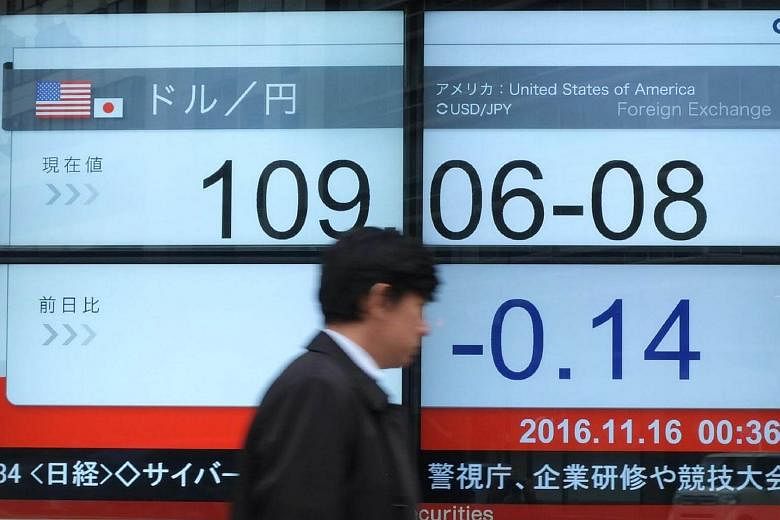Oil prices surged to their highest level in eight weeks and stock markets across Asia rallied yesterday after major producers Opec and Russia struck the first deal in eight years to curb global crude oil production.
Benchmark Brent crude soared to around US$53 a barrel - up about 14 per cent from Tuesday on news of the Vienna deal on Wednesday.
The jump fuelled the largest rally in Asian bourses in recent weeks. Japan leapt 1.12 per cent, Shanghai added 0.72 per cent, Hong Kong rose 0.39 per cent and Singapore put on 0.81 per cent.
While oil prices appear to have stabilised for now, economists say it is premature to speculate if a meaningful recovery is at hand for Singapore's offshore sector, which is estimated to have lost up to 15,000 jobs in the past year.
Still, some analysts are cautiously optimistic that oil prices appear to have found a floor and may be less of a drag on the Singapore economy.

"Higher oil prices are a positive for our oil and gas companies that have been struggling for the past few years. Offshore marine production has been contracting 40 per cent year on year, which weighed down the manufacturing sector and gross domestic product growth," DBS economist Irvin Seah said.
CIMB economist Song Seng Wun said banks are another indirect beneficiary as higher oil prices would alleviate deterioration in the balance sheets of oil and gas companies, and help keep banks' non-performing loans to the sector from worsening.
But he is waiting to see how it will all play out. "Jobs and investment will follow when there is a sustainable rebound in oil prices. Rigs cost hundreds of millions of dollars. No one will invest that kind of money, or hire if they are not convinced that the oil recovery is sustainable."
Singapore Business Federation chief executive Ho Meng Kit warned that even if oil prices were to recover, the local oil and gas sector may not bounce back to pre-slump days. "Some of the jobs may not come back to Singapore because there is a lot of excess capacity globally. Shipyards in China, for instance, can build rigs cheaper than Singapore," he said.
The long slump in oil prices has led to lower certificates of entitlement for motorists and cheaper utilities for consumers. But the latest price rise is unlikely to lead to much cost inflation as prices will not return to the US$100 levels any time soon, said Mr Song.
Oil prices have whipsawed since the cut was first proposed in Algiers in late September and investors speculated if a deal could be struck.
But the agreement reached by the Organisation of Petroleum Exporting Countries (Opec) and Russia was broader and deeper than expected. It included hefty cuts by heavyweight Saudi Arabia and Opec's first coordinated action with non-member Russia in 15 years.
But sceptics are already questioning whether all Opec members and Russia will deliver on their individual commitments.
Phillip Futures investment analyst Jonathan Chan said: "Russia may also face difficulties implementing the cuts. Although the government owns majority stakes in big oil companies, the minority shareholders may not agree to this. Secondly, Russia must keep oil flowing in certain areas... to keep oil pipes from freezing up."
SEE BUSINESS
Opec deal lifts shares of banks, oil and gas firms


